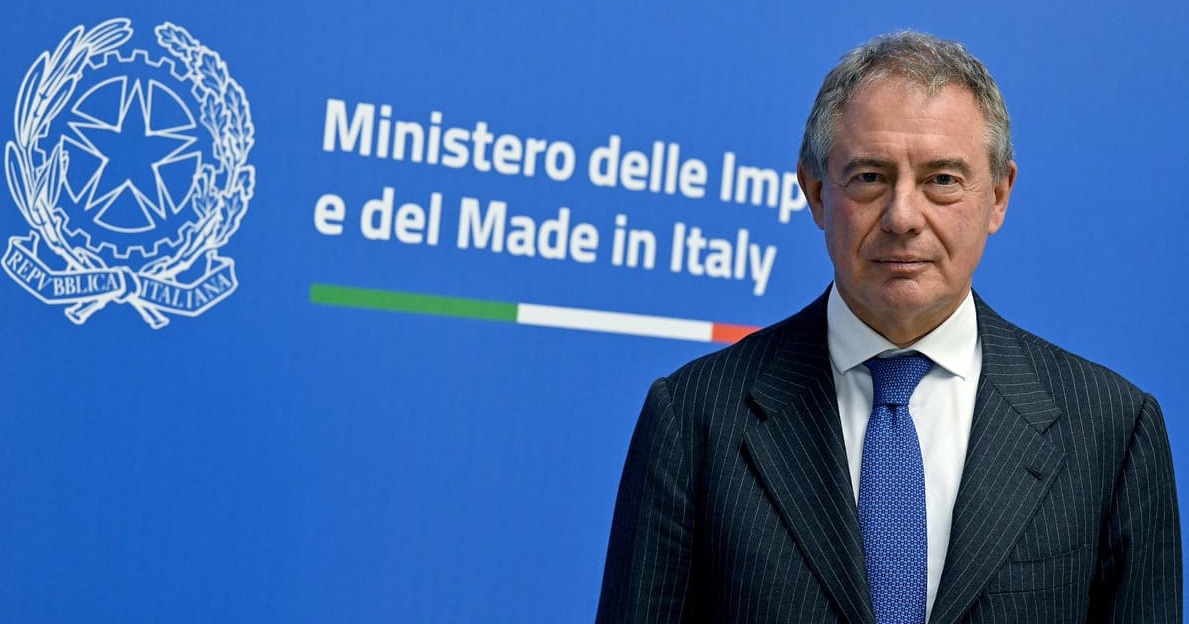
Urso in Brussels Builds Alliances Against the Ban on the Sale of Diesel and Petrol Cars
Italy quickly finds support from Germany on the future of cars and European regulations. German Energy Minister Robert Habeck backs Italy’s request to revise CO2 emission standards for cars swiftly, moving the review from 2026 to early 2025. However, Berlin remains much cooler on postponing the ban on the sale of diesel and petrol cars, currently set for 2035.
This emerged from a meeting between Habeck and Italy’s Minister for Enterprises and Made in Italy, Adolfo Urso, on September 25. Their dialogue precedes the official presentation of Italy’s proposal to amend the ban on diesel and petrol car sales in Brussels.
Berlin Agrees to Early Review of CO2 Emission Limits
Habeck supports moving up the revision clause from late 2026 to early 2025, under the “CO2 Emission Regulation for New Cars and Light Vehicles,” to give the automotive industry more certainty for long-term investment planning, as stated in a note by Italy’s Ministry of Enterprises and Made in Italy (MIMIT).
However, the main sticking point for Italy remains the 2035 ban on new internal combustion engine vehicles, which mandates near-zero emissions for passenger vehicles by that date. While Italy opposes this deadline, viewing it as too soon, Berlin is not open to changing it, at least for now.
Urso: We Are Not Currently Able to Meet the 2035 Deadline
Today, Urso will present to his European counterparts the Italian proposal to revisit one of the most controversial Green Deal dossiers from the previous European legislature. The goal is to create a coalition of countries that support the revision of the rules established in 2022 and share fundamental principles to rewrite the roadmap.
The request will be conveyed through a “non-paper,” an informal policy proposal to be submitted to the new EU Commission, which should consider the weight of these countries and reopen the matter as soon as possible.
Bringing forward the rule revision by nearly two years—from late 2026 to early 2025—“would allow us to reach the best possible shared decisions, maintaining the 2035 goal as our preferred scenario while also creating the necessary conditions to meet that objective,” Urso explained from Brussels.
According to the minister, the current situation is unsustainable, and restarting the debate on the ban on the sale of diesel and petrol cars is the only way to protect both industry and consumers, “especially in light of recent data showing a significant drop in car production and a sharp decline in electric vehicle sales.”
“We are now certain that with this revision timeline, we will not achieve the goals we have set for 2035, so we must accelerate,” Urso concluded, alluding to the need for immediate countermeasures to safeguard the EU automotive market from actions by the United States and China.
Italy’s Non-Paper on the Ban on the Sale of Diesel and Petrol Cars
During the Competitiveness Council on September 26, Minister Urso presented the contents of the non-paper to his EU counterparts, proposing a revision of the parameters for the automotive transition in Europe. The formal document will be presented only after consultations with EU countries that support Italy’s position.
In summary, the Italian non-paper on the ban on the sale of diesel and petrol cars from 2035 includes four requests:
- Activate the CO2 Emission Regulation Review Clause: Move the review from late 2026 to early 2025.
- Thoroughly Reassess the Transition to Ban Internal Combustion Engines by 2035: Examine the conditions leading to this ban.
- Establish a “Competitiveness Fund”: Drawing from the recommendations in the Draghi report on EU Competitiveness, this fund would support various sectors, including automotive.
- Enhance the Business Environment through Simplification: Implement measures to streamline processes.
Regarding the Competitiveness Fund, Italy will request a simplification of Important Projects of Common European Interest (IPCEIs) and the creation of a new industrial policy tool to meet the needs of SMEs.
In terms of simplification, Italy proposes:
- A reduction in regulatory obligations, cutting compliance costs by over 25% compared to what the European Commission has suggested.
- Implementation of the principles from the 2023 European SME Package.
- Promotion of the “Made in Europe” brand to prioritize European products in public procurement, an important issue for the French government as well.
Conditions for Maintaining the 2035 Ban on Diesel and Petrol Cars
Italy believes that the 2035 deadline for banning internal combustion engines can only be upheld if three conditions are met simultaneously:
- Establishment of a Support Fund: A fund must be created to support the entire automotive supply chain and consumers purchasing electric vehicles produced in Europe.
- Adoption of a Technology-Neutral Approach: There should be a technology-neutral approach that recognizes the important roles of biofuels, e-fuels, and hydrogen.
- Strategy for European Battery Production Autonomy: A strategy must be defined to ensure European autonomy in battery production, utilizing critical raw materials that are extracted and processed on the continent.
While the last point is already in progress with the Critical Raw Materials Act and other related measures, much work remains to be done on the first two conditions. The request for technology neutrality should go hand in hand with a careful evaluation of the production methods, volumes, and uses of biofuels, e-fuels, and hydrogen. There is a risk that different supply chains could hinder one another, obstructing the achievement of key EU objectives for the transition. For instance, extensive use of e-fuels and hydrogen in transportation would require a significantly higher installed renewable energy capacity than currently projected.